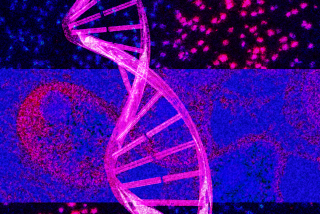U.S. leads in convicting Nazis
- Share via
The United States has secured more legal victories against suspected Nazi war criminals than any other country over the last eight years, but progress has slowed over the last year, according to a Jewish human rights organization in Los Angeles.
The Simon Wiesenthal Center said in a new report that U.S. authorities have been responsible for 37 of 82 legal actions against suspected Nazis worldwide since 2001, when the organization began keeping statistics.
The center’s chief Nazi hunter, Efraim Zuroff, who graded more than three dozen countries on their efforts to prosecute Nazis, gave the United States an A despite a falloff in deportations and new investigations in the latest annual evaluation.
Zuroff said, however, that the Department of Justice’s Office of Special Investigations has continued to play an important role amassing evidence against suspected Nazis and urging countries to prosecute cases.
He said the special investigations unit played a key role in the May deportation of onetime concentration camp guard and former Cleveland autoworker John Demjanjuk, 89, who is scheduled to face trial later this month in Munich on charges of allegedly being an accessory to murder.
“The U.S. is probably the only proactive Nazi-hunting agency in the world,” Zuroff said.
The head of the special investigations squad, Eli Rosenbaum, said the number of legal victories had fallen in the last year because the number of suspected Nazis in the U.S. is shrinking. Since the unit was launched in 1979, authorities have won legal cases against 107 people who participated in Nazi crimes, the Department of Justice reported. Sixty-one have been deported. Others have died.
Federal authorities have prevented more than 180 individuals implicated in World War II crimes from entering the U.S., according to Justice Department figures.
In addition to Demjanjuk’s case, Rosenbaum noted that U.S. authorities in April deported former concentration camp guard Josias Kumpf, 83, to Austria. He has since died.
“It’s precisely because we have been proactive and so tenacious in pursuing these cases over decades that you see fewer now,” Rosenbaum said.
The Wiesenthal Center also recognized Germany and Italy for stepping up prosecutions.
Most other countries in the study took little if any action against Nazis. Norway and Sweden, for example, did not act because of statutes of limitations. Other countries failed to investigate because they lacked political will or expertise, Zuroff said. This group included Australia, Austria, Estonia, Hungary, Lithuania and Ukraine.
More to Read
Sign up for Essential California
The most important California stories and recommendations in your inbox every morning.
You may occasionally receive promotional content from the Los Angeles Times.










